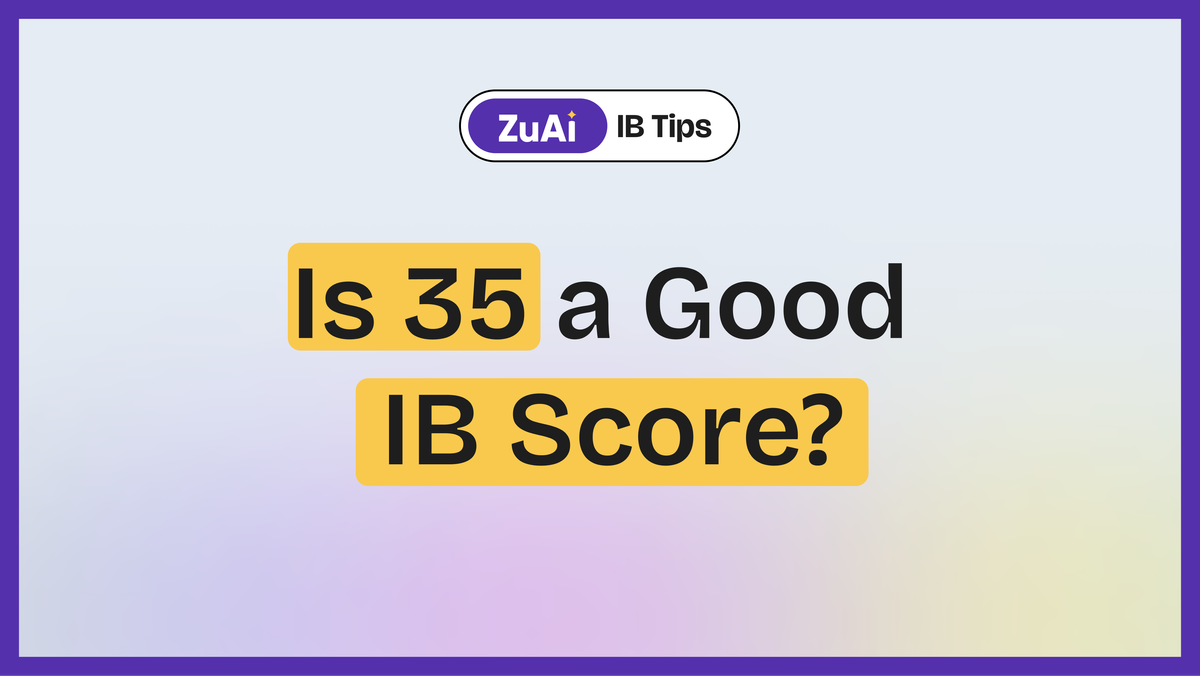Is 35 a Good IB Score?

If you're an IB student or parent, you might be wondering, "Is 35 a good IB score?" This guide will help you understand the significance of a 35 IB score and how it affects college admissions in a friendly and easy-to-understand way. Let's get started!
Understanding the IB Scoring System
How is the IB Score Calculated?
The International Baccalaureate (IB) program scores students on a scale of 1 to 7 for each subject. Students take six subjects, giving a maximum possible score of 42 points. Additionally, students can earn up to 3 extra points from their Extended Essay (EE) and Theory of Knowledge (TOK) assessments, making the total possible score 45 points.
Is 35 a Good IB Score?
A score of 35 is considered good and above the global average. Here’s a more detailed breakdown:
- 24-30: Satisfactory, meeting the minimum diploma requirements.
- 31-35: Good, above average and competitive for many universities.
- 36-38: Very good, highly competitive.
- 39-45: Excellent, demonstrating outstanding academic performance.
Why is a 35 IB Score Important?
College Admissions
A score of 35 is competitive for many universities worldwide. While it might not be sufficient for the most selective schools, it still demonstrates strong academic performance and a good grasp of the subject material.
Scholarships and Advanced Placement
Some universities offer scholarships and advanced placement opportunities for students with scores of 35 and above. This can provide financial aid and allow students to skip introductory courses, saving time and money.
Tips to Improve Your IB Score
1. Stay Organized and Manage Your Time
Effective time management is crucial in the IB program. Use planners or digital tools to keep track of deadlines, assignments, and exam dates. Prioritize tasks to ensure that you're staying on top of your work.
2. Understand the Assessment Criteria
Familiarize yourself with the assessment criteria for each subject. Knowing what examiners are looking for can help you tailor your work to meet those standards and maximize your scores.
3. Seek Help When Needed
Don't hesitate to ask for help from teachers or peers if you're struggling with a topic. Study groups can provide additional support and motivation, and tutoring can offer targeted assistance.
4. Practice with Past Papers
Regularly practicing past exam papers can help you get used to the format and timing of the exams. It also highlights areas where you need improvement, allowing you to focus your study efforts more effectively.
FAQs
Is 35 a Good IB Score for Ivy League Schools?
While a score of 35 is good, it may not be sufficient for Ivy League schools, which typically prefer scores of 38 and above. However, a strong application with excellent extracurriculars and recommendations can still make you a competitive candidate.
What is the Average IB Score?
The global average IB score typically ranges between 28 and 30. Scoring 35 puts you well above this average, indicating strong academic performance.
How Can I Convert My IB Score to a Percentage?
While there's no official conversion, a score of 35 out of 45 can be roughly estimated as 78-80% on a traditional percentage scale. This approximation can vary depending on specific university guidelines.
Is 3 a Passing Grade in IB?
Yes, a score of 3 is a passing grade, but it indicates a basic level of understanding. For most subjects, a score of 4 or above is generally considered satisfactory.
What is the Highest Possible IB Score?
The highest possible IB score is 45, achieved by scoring 7 in each of the six subjects and obtaining the maximum 3 extra points from the EE and TOK assessments.
